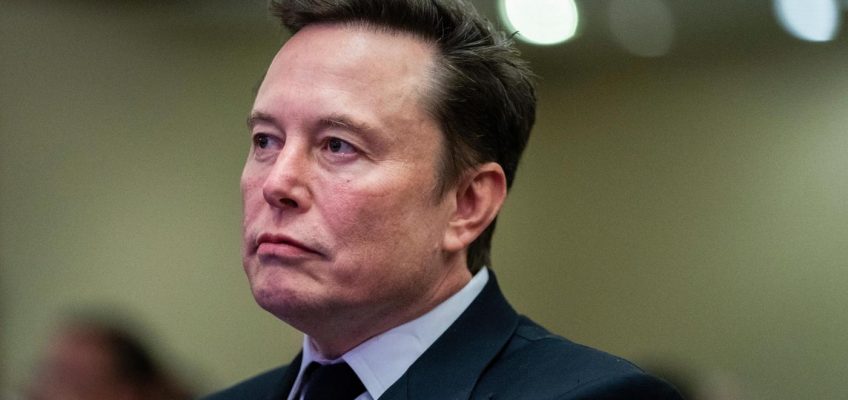NASHWAUK, Minn. — A controversial $2 billion-plus mining project on Minnesota’s Iron Range that has weathered an economic recession, missed deadlines and payments, bankruptcy, changes in ownership, three gubernatorial administrations and a high-stakes legal battle with a competitor now appears to be moving toward completion, 15 years after construction first began.
Last month at the Mesabi Metallics mine site outside the small town of Nashwauk, 400 workers milled about, over mud stained a rich red from the iron in the earth.
Towering cranes placed steel on enormous buildings where — if all goes to plan — millions of tons of iron ore will soon be dug out of the ground, crushed, processed and then baked in super-hot kilns into high grade taconite pellets, to help supply a new generation of American steel mills.
“We actually have about $550 million worth of steel and parts that are being installed as we speak,” said Mesabi Metallics chief operating officer Larry Sutherland during a tour of the sprawling 16,000-acre site.
“We have about $1.8 billion invested to date, with about another $500 to $600 million to go,” Sutherland added. “So all in we’ll be about a $2.5 billion investment, which is one of the largest capital investments in the history of Minnesota.”
It’s a remarkable turnabout from nine years ago, when the project, owned by Indian company Essar Steel, ran out of cash with the mine half-built. The company owed tens of millions of dollars to contractors and to the state after several missed deadlines and unkept promises. Five years ago Gov. Tim Walz even tried to ban Essar from the state.
Then Minnesota officials yanked key state-owned mineral leases critical to the project, and last year awarded them to rival mining company Cleveland Cliffs.
But despite all those setbacks, Mesabi officials are vowing to complete the massive project within a year. And local residents and officials are cheering them on.
It was standing room only at a recent community meeting at the Nashwauk town hall, where Mayor Cal Saari proclaimed an “Appreciation Day” for Mesabi Metallics and presented the company with a key to the city.
“I’m telling you, in Itasca County, happy days are here again,” said Saari.
Rich ore
Mining companies have eyed the iron ore deposits at the Mesabi site for decades, in an area called the Butler Corridor between Nashwauk and Calumet, where Sutherland estimates there’s 2 billion tons of crude ore still underground.
Sutherland began his career as an 18-year-old union millwright at Butler Taconite, a small mine that operated for nearly two decades in the area before it shut down in 1985.
He went on to lead U.S. Steel’s operations on the Iron Range. Now, 50 years after his first job in the industry, he’s relishing the chance to help build a new mine from scratch.
Inside the 10-story tall concentrator plant under construction, he pointed out huge rotating mills some 40 feet across that will grind the iron ore into a fine powder.
“This is happening,” Sutherland said. “There’s no more questions about the viability of this project. It’s fully financed by our owner, and it’s moving forward to completion.”
The company intends to produce specialized taconite pellets that can be used to create a high-grade product called direct reduced iron to feed electric arc furnaces. Those are more modern, flexible and efficient steel mills that are increasingly replacing the giant blast furnaces located around the Great Lakes.
Sutherland said Essar Steel, Mesabi’s owner, is now debt-free after paying off $26 billion in debt over the past few years.
It’s a far cry from 2016, when Essar declared bankruptcy just before former Gov. Mark Dayton tried to turn over the project to rival miner Cleveland Cliffs.
“Who wants to do business with a company that behaves like this?” Dayton asked, after Essar failed to repay $66 million it owed the state for providing infrastructure to the mine site.
“I’d rather they sell it to somebody who’s going to operate it in a responsible way, where you shake hands at the end of a meeting, and they’re going to keep their word,” Dayton said.
It was a devastating turn of events to local and state officials who backed the project, in large part because Essar promised to not only build a mine, but also the first steel mill to be located on the Iron Range.
But after a couple years and following a complicated legal tussle, Essar eventually regained control of the project, now renamed Mesabi Metallics.
Sutherland, who came on board three years ago, said Essar has repaid contractors, and ramped up work early this year.
State officials confirmed the company is up to date on its repayment plan with the state.
“We realize this project has some history,” Sutherland said at the Nashwauk town hall. “That history is behind us.”
“If anyone thinks we don’t have the bandwidth to move this facility forward,” he added, “watch and see.”
While the focus is on completing a mine and pellet plant, Sutherland said there’s still a possibility of building a value-added iron plant on site, which could help make a more climate-friendly, lower-carbon steel.
The unions whose members are building the project say the focus now should be on finishing the project, not fighting over the past.
“It’s the thousand construction jobs, 700 indirect jobs, 350 multigenerational jobs. We need that on the Iron Range,” said Jason Quiggin, president of the Iron Range Building Trades, during a visit to the state Capitol earlier this year.
Local officials say the family that owns Essar has rebuilt trust through regular meetings. Nashwauk Mayor-elect Gary Heyblom said they’ve developed genuine friendships. The company has also donated nearly a half-million dollars to local organizations since last year.
“They’re wanting to correct the mistakes of the past,” Heyblom said.
Lease battle
Mesabi suffered a major setback a couple years ago when Minnesota officials yanked 2,600 acres of state-owned mineral leases critical to the project, after a series of unmet requirements. Then last year the state awarded those mineral rights to Cleveland Cliffs.
Cliffs wanted the ore to extend the life of nearby Hibbing Taconite. The company is running out of iron ore to mine at the facility, which supports more than 700 jobs. But it also significantly shortened the lifespan of Mesabi’s project.
“Their project went at that point in time, from a project that arguably could have been 20 years plus, to something that shrunk down, depending on how rapidly someone mines… to a six to eight year kind of window,” said Joe Henderson, director of the division of lands and minerals at the Minnesota Department of Natural Resources.
But now, in an ongoing court battle, Mesabi appears to have wrested control of a different 3,200 acres of mineral leases from Cliffs.
Henderson said that could drastically change the math of Mesabi’s project.
“If that court ruling sticks, that just brought, arguably, easy a decade or more of ore back into a Mesabi-Essar project,” Henderson said.
Sutherland said with those additional leases, the Mesabi project could extend 40 to 50 years.
It’s unclear what impact the tussle over mineral leases will have on the future of Hibbing Taconite. The area is now a checkerboard of mineral ownership, which Henderson said can create headaches for mining companies trying to connect the different parcels they control.
Cleveland Cliffs had submitted a plan to the DNR to mine the 2,600 acres it obtained from the state last year, and construct a 14-mile rail line to transport the ore to Hibbing Taconite.
But after the recent ruling in favor of Mesabi for the 3,200 acres, Henderson said Cliffs has paused the project.
“And so they haven’t withdrawn the project, but they’re not moving forward on it at this point in time,” Henderson said.
Cliffs didn’t respond to a request for comment.
Meanwhile Mesabi must also secure an updated permit to mine from the DNR, as well as amended environmental permits from the Minnesota Pollution Control Agency, before it can move forward with its project.
Henderson said the agency is also weighing whether the project requires a fresh environmental review, since the footprint of the mine proposal has now changed.
That decision could impact Mesabi’s aggressive timeline. Sutherland said their goal is to finish construction by the end of next year.
If that happens, a project that has so far delivered only unmet promises, could ship its first railcars of ore by early 2026.
Related Articles
Burglars believed to be targeting Asian households in Rochester
St. Cloud City Council seats its first Somali American member
Minnesota House panel votes to cover DFLer’s workplace employment action
‘Air guitar’ motorist avoids prison time for fatally striking pedestrian in Carlton County
Duluth man, 78, dies while skating on thin ice on St. Louis River in Superior




